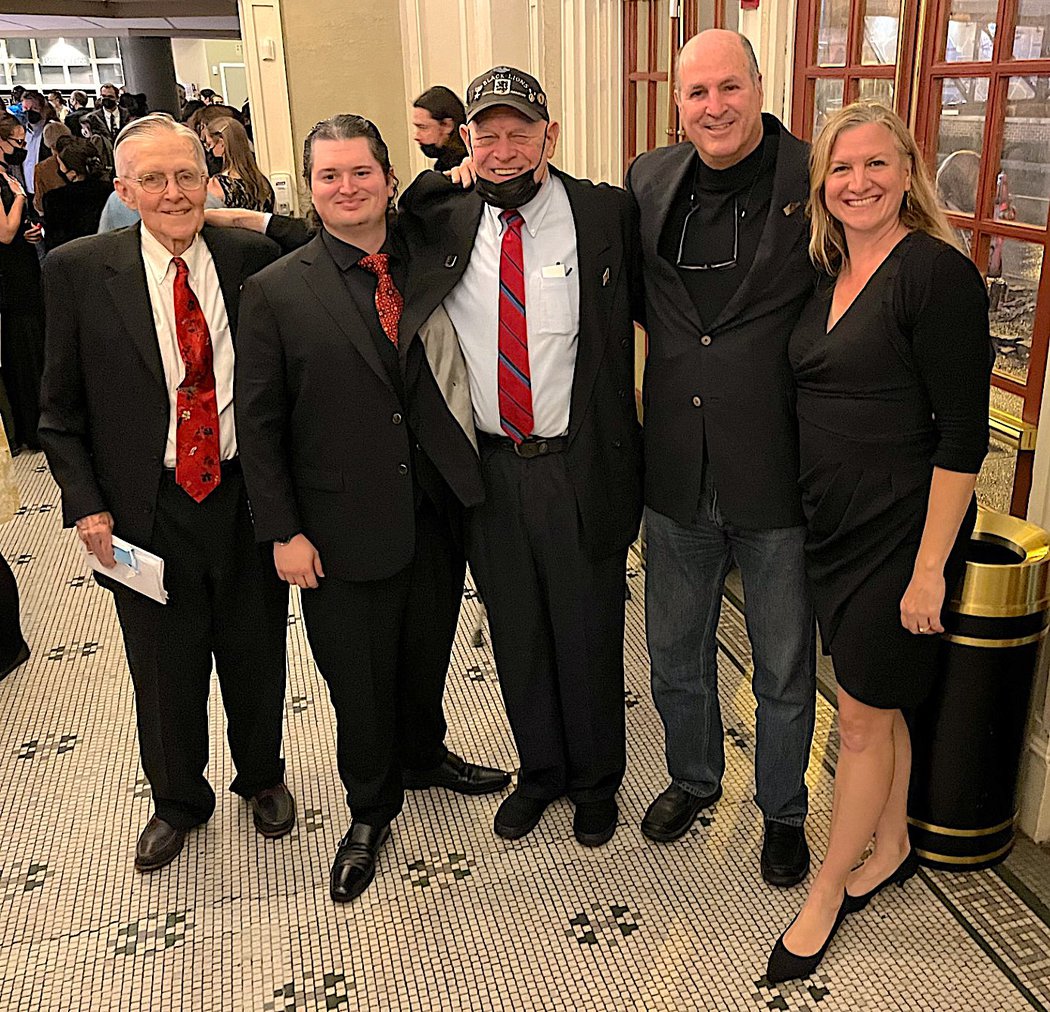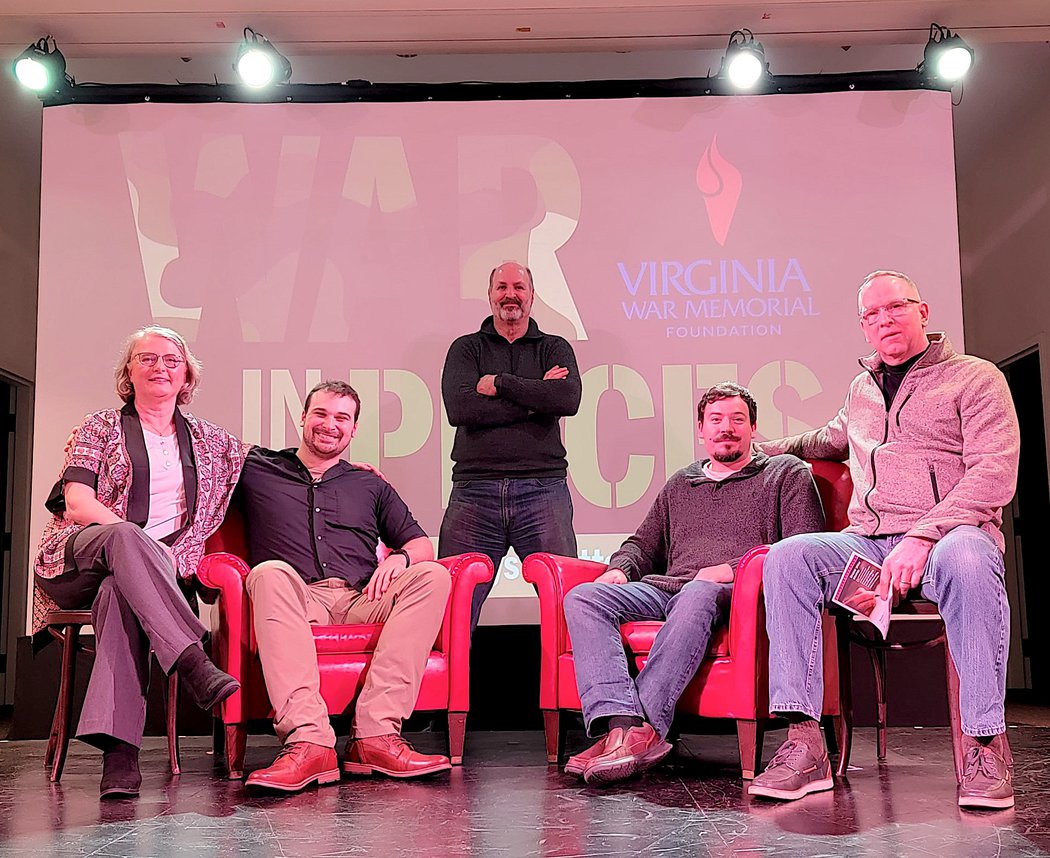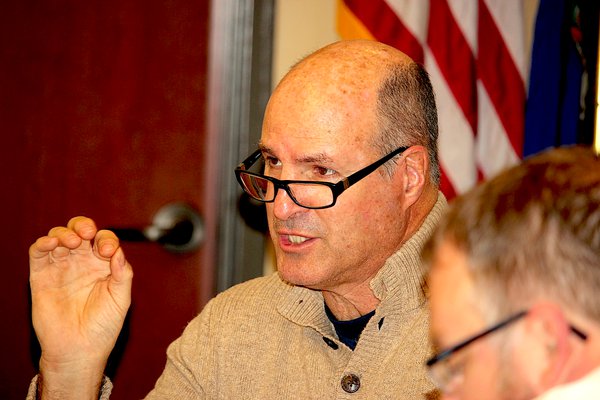Power of the Pen
March 11, 2024
“We don’t have to honor the war, but we have to honor the soldier,” says Larry Meier, a Vietnam veteran whose compelling story, “Quang Tri Rain,” reveals the often hidden but tumultuous return to civilian life experienced by many military vets. That story, and many more, are evidence of the healing power of the pen.
That power is now captivating listeners all over the country. Part of the 10th anniversary of the Virginia War Memorial Foundation’s Mighty Pen Project, which provides writing classes for veterans, The Mighty Pen Podcast (available through Apple Podcasts, Spotify, and the VWMF YouTube Channel) premiered in January as a vessel for sharing the vast range of experiences veterans and their families have faced during war and peace.
Those stories are also coming to the stage this month when The New Theatre at Firehouse Theatre presents “War in Pieces,” four original one-act plays that focus on the struggles of veterans both during wartime and when they return home. Eight performances run March 15-24 at the Virginia War Memorial’s VMI Alumni Hall.
The Mighty Pen Project is a free 12-week, university-level creative writing class that works with vets to develop their memories into poignant, riveting and sometimes humorous stories. “The power of these stories has been that I can pass them on to my family and they know something about who I was,” Meier says.
The Mighty Pen Podcast features stories produced over the 10 years of the project. Throughout 2024, new episodes are released every Tuesday. They begin with a dramatic reading by professional actors of a select story from the project’s past, followed by an interview with the writer, adding more insight and perspective to the words.
Sharing their stories — memories many thought would die with them — is incredibly healing, according to the writers participating in a Thursday night Mighty Pen Project Zoom class with their mentor and the program’s creator, David L. Robbins. A New York Times bestselling author, playwright and writing professor in the Honors College at Virginia Commonwealth University, Robbins partners with the Virginia War Memorial and VCU to archive as many of these veterans’ stories as possible. More than 200 accounts have been saved via the VCU Scholars Compass publishing platform, with 150 to 200 downloads a week.

In 2023, the second edition of “War in Pieces” featured performances of stories written by military veterans. (From left) Laura Bender, Dan Barotti, Mighty Pen Project creator David L. Robbins, Phil Trezza, Joe Maslanka
“There were so many life experiences that I didn’t want to die with me,” says Laura Bender, a retired U.S. Navy chaplain who served as the first female chaplain in combat and has worked with detainees and migrants in Guantanamo Bay. “These are stories that can’t be told alone, and this is a way of sharing.”
David Aldridge, who served 45 years in the U.S. Army with three tours in Vietnam, has been a member of the Mighty Pen Project since 2016 and has written more than 100 stories. For him, the class is a “fun but excruciating adventure. This crew has learned to support each other, gently, and guide each other, gently.”
The dozen military veterans in the current class — including a member of a Navy bomb disposal team, a Coast Guard officer whose polar icebreaker ship inspired the film “The Dirty Dozen” and a naval officer who spent his 32-year career in a submarine — range in age and experience, but all echo a feeling of freedom to express themselves with others who have known both war and reacclimation.
“This has opened up a whole new part of my life,” says Dan Barotti, who served as first lieutenant on the USS McCampbell and retired from active duty in 2021. Barotti sums up the isolation he felt as a sailor in his story “Hellcat”: “Salty air whisked weddings, birthdays, graduations, and all other major events at home away. I’d sacrificed them all to be here. I had my crew, and my memories. That was it,” he writes. “More readily apparent is how sea and salt eat at metal hulls. Less apparent is how they eat away at minds of men and women.”
Getting those memories out is the first step. Robbins’ job is teaching veterans how to write taut, intense, rich stories that draw the reader in and leave them wanting more. “The gold standard,” Robbins tells his students, “is the ability to put the reader in that place.”
Robbins, the son of two World War II vets who served at Pearl Harbor, grew up in a Sandston neighborhood where “the little saltbox houses on my street mostly had World War II veterans.” Robbins says those men and women had a strong sense of service, something he sought to emulate. “I wanted to do something of service,” but the military wasn’t in the cards for him. Instead Robbins went to law school, which he calls the “great catch basin for the unfocused overachiever.” It didn’t take, and he practiced law for just under a year. A job in advertising copywriting honed his writing skills, but his dream was to write a novel.
“I took 2 1/2 years to write ‘War of the Rats,’ but I couldn’t give it away,” he says. Finally, his book “Souls to Keep” got the attention of an editor at HarperCollins. Robbins was not only published, the publishing house also offered him a three-book deal. His writing and teaching careers took off, but he saw his pathway to service helping veterans write their stories. That was the start of the Mighty Pen Project, one of five nonprofits he has founded, all of which are still operating. The program gives veterans a voice and readers, viewers and listeners a glimpse into the courage and dedication of those who served.
“War in Pieces” runs March 15-24 at the Virginia War Memorial's VMI Alumni Hall. Tickets are $35, $15 for active duty and military veterans. The Mighty Pen Podcast features a new episode every Tuesday throughout 2024 and is available via Apple Podcasts, Spotify and the VWMF YouTube Channel.
By Claire Fortier. This article first appeared in Richmond Magazine.
The inaugural "War in Pieces" production featured live performances of stories written by military veterans during the Mighty Pen Project class. (From left) Robert Waldruff, Chuck Williamson, David Aldridge, Mighty Pen Project creator David L. Robbins and Rachel Landsee < Previous Next >
 Chat
Chat
